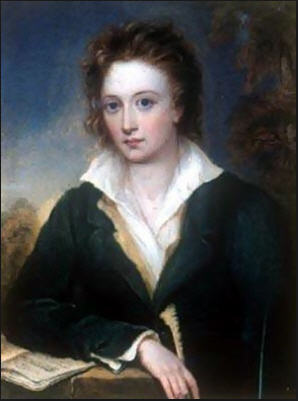International Authors and the editors of Emanations are
happy to announce a Call for Submissions:
Emanations 8
Emanations is an anthology series featuring fiction, poetry, and essays. The emphasis is on alternative narrative structures, new epistemologies, peculiar settings, esoteric themes, sharp breaks from reality, ecstatic revelations, and vivid and abundant hallucinations.
In Emantions 8, we seek to emphasize graphics and visual pieces. We are especially interested in asemic writing and images, visual poetry, formalist experiments in prose, bricolage, new experiments in graphic representation, and visual narratives. Artists are invited to prepare "compressed" portfolios (5-20 images) with an "artist's statement." Please bear in mind that the production will be in black and white.
The editors are also interested in literary material. We seek fiction and poetry that present unworldly ways of seeing, feeling, and describing. Recognizable genres -- science fiction, fantasy, horror, political dystopia, satire, mystery, local color, romance, realism, surrealism, and postmodernism -- are fine, but the chief idea is to make something new, and along these lines the illusion of something new can be just as important.
If an image, story or poem makes someone say, “Yes, it is good, but what is it?” then it is right for Emanations.
Essays should be exuberant, daring, and free of pedantry. Accounts of unusual travels will fit well into Emanations 8. Length is a consideration in making publication decisions, but in keeping with the spirit of the project contributors should consider length to be “open.”
Our editorial vision is evolving. Contributors should see themselves as actively shaping the “vision” of Emanations.
Email files with brief cover note to:
IAsubmissions@hotmail.com
Review of Submissions begins January 4, 2020
Review of Submissions begins January 4, 2020
Contributors should place their name in the subject heading, and they should include their name and contact information in the submitted file.
Emanations is a not-for-profit literary project and contributors cannot be compensated at this time. All proceeds from the sale of Emanations will support the efforts of International Authors to publish new voices from around the world. Contributors receive a copy upon publication. Only one complimentary copy will be sent to each contributor; the fortunes of the mail, particularly international mail, is beyond the control of International Authors.
The project is a collaborative effort, and as we share ideas the “vision” transforms, evolves, and grows. When we write stories and poems we hope to bring to bear the entire battery of modern and postmodern literary devices. More simply: we like good, strong writing. Our essays are incisive, precise, keen, challenging, and driven by the writer’s desire to advance an intelligent audience’s understanding of exotic subjects.
The Fine Print:
1) Submit files as follows: double space, Microsoft Word, Times New Roman size #11. Set Tabs for .2” and set spacing at 15. Use smart quotes. This will help reduce the workload as the editors format book for publication.
2) No simultaneous submissions (contributors should get fairly quick feedback anyway, especially if their submission meets our needs). Material that is obviously pulled from a file and has nothing to do with the goals of the anthology won’t get any feedback beyond the initial acknowledgement.
3) Word count/line count? See details above. We’re flexible, but contributors should be sensible when considering what they send in. A novella? Well, maybe, and so on.... Rules of thumb: a) Stories: very short to 20-30 pages. b) Poems: send in 5-10 pages. c) Essays: 5-10-30 pages.
4) Published as hard copy only -- Emanations will be available on Amazon. Participants who make a substantial contribution of material, editorial work, or art will get a copy. It can take some time to get copies to contributors outside of North America. In the case of our first anthology, for example, it took forty-five days to get a copy to a contributor in to Nepal. As described above, only one copy will be sent to each contributor; the fate of the mail, particularly international mail, is beyond the control of International Authors.
5) International Authors is a consortium, and as such every contributor is a “member” of our community, and contributors are encouraged to help promote the anthology by sending review copies to newspapers, journals and relevant Web sites.
6) Copyright “reverts” to contributors upon publication. That is, after an accepted piece appears in Emanations, the contributor can publish their piece elsewhere. Contributors should understand that Emanations could remain for sale on Amazon indefinitely. All materials appearing in Emanations are under the exclusive copyright of the contributing writers and artists.
7) Note to poets: Please do not send poems as individual files. All poetry submissions should be sent as a SINGLE MircosoftWord file formatted in Times New Roman, size 11. Please submit three to ten pages.
8) Note on calendar: The editors will not review submitted files until January 4, 2020.
Contributors submitting work to Emanations agree
to these points.
Published by International Authors
Board of Editorial Advisors
Ruud Antonius, Netherlands/UK/Switzerland
Michael Beard, US
Jason W. Ellis, US
Cedric Cester, Spain
Mike Chivers, UK
Sushma Joshi, Nepal
Vitasta Raina, India
Stephen Sylvester, US
Don Tinsley, US
Don Tinsley, US













































